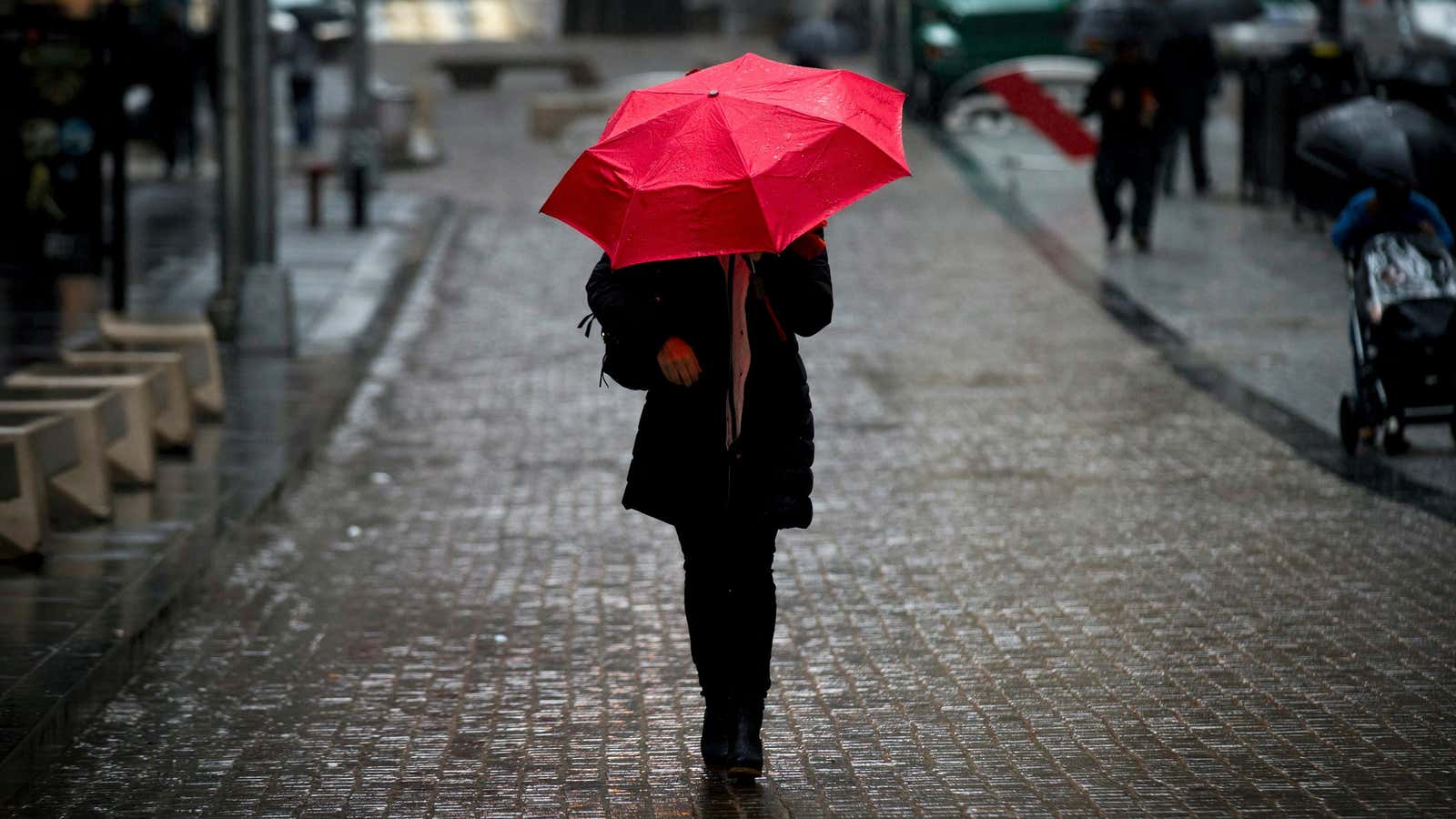Women do a lot of work which goes unrecognized—from unpaid cleaning, cooking, and child-rearing at home to emotional labor at the office. You can add “safety work” to the list.
The phrase refers to the measures taken by women—either consciously or unconsciously—to try protect themselves from sexual harassment or violence, such as taking particular routes while walking, watching their drinks being poured, and avoiding large groups of men. It’s highlighted in a report by the UK government released Tuesday (Oct. 23) about the types of sexual harassment endured by women and girls.
“‘Safety work’ came up repeatedly in the evidence we received from individual women,” the report’s authors write. “One woman told us: ‘I’m hyper-aware of men when running, particularly when I’m on a street with no-one else around.’ One woman in her forties said she still has vivid memories about being sexually harassed in her twenties and told us about the impact it had on her.”
The report, commissioned by the UK parliament’s Women and Equalities Committee, describes the harassment endured by women as so “relentless” that it had become normalized. It cites a 2014 survey on street harassment by Cornell University and anti-harassment initiative Hollaback! that assessed how much sexual harassment impacted women’s behavior. Women reported changing their clothes, route, job, location and the way they socialized in an effort to avoid assault.
For many women, taking these types of steps is a routine part of their daily experience. Quartz reporter Rosie Spinks, for example, has highlighted the multiple steps female runners take to avoid or ignore unwanted attention, including wearing earbuds to drown out unwanted comments. And a chart based on Jackson Katz’s research on gender violence prevention for his 2006 book The Macho Paradox: Why Some Men Hurt Women and How All Men Can Help, exposes the stark contrast between the extent to which men and women take action to protect themselves.
Women are increasingly pushing back against the idea that they need to do even more “safety work” than they are already doing in order to avoid sexual violence, as opposed to society taking active steps to prevent men from committing assaults. In June, after Australian police urged people to “take responsibility for their safety” after the murder of a young woman in Melbourne, women were outraged. “As decades of feminist research has documented, women, for the most part, already engage in these extensive ‘safekeeping” routines, writes Bianca Fileborn, a lecturer in criminology at the University of New South Wales. “Many women have been taught from a young age that they are responsible for avoiding the violence that men perpetrate against us. At best, this makes safety ‘advice’ redundant.”
The irony, Fileborn points out, is that women often don’t use these techniques with people they know or places they’re familiar with. “But unfortunately, as the statistics on violence against women show all too clearly, those we trust are among the most likely to hurt us—feeling safe is unfortunately not the same as being safe.”
